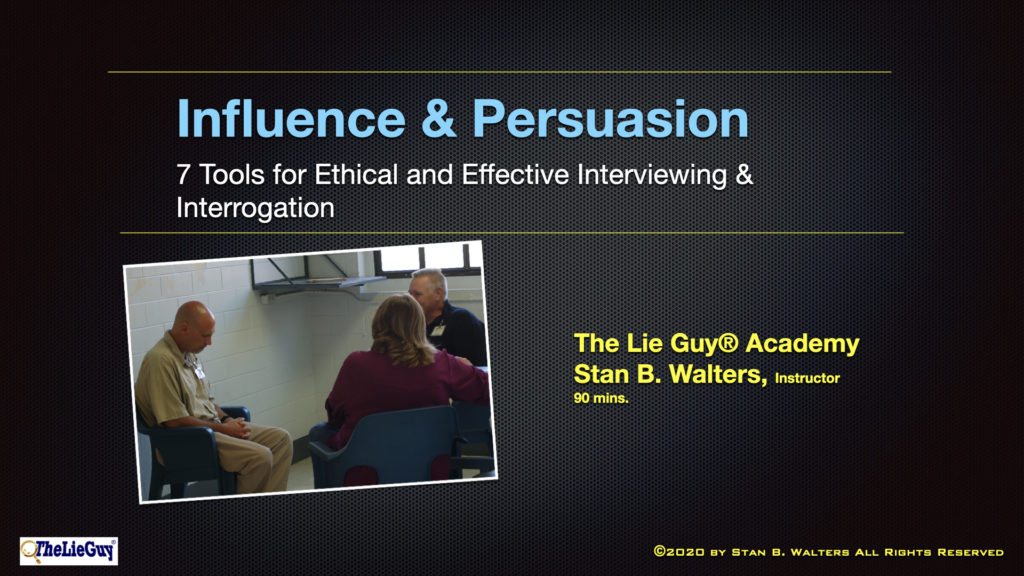Are You Using Influence — or Manipulation?
When an interview stalls, most investigators default to pressure tactics, leading questions, or emotional appeals. But what if you could gain cooperation and uncover truth using techniques that build trust instead of breaking it?
This course teaches you how to apply influence and persuasion tools that ethically shift control, encourage openness, and get better answers — all while avoiding the traps of coercion or contamination.
What You’ll Learn:
- The difference between influence, persuasion, and manipulation — and why it matters in legal settings
- How to recognize and counter resistance without becoming adversarial
- Techniques that guide subjects toward disclosure using their own motivations
- How to improve your interview outcomes by controlling framing, tone, and timing
- Why some “common” persuasion tactics backfire — and what to do instead
Why It Matters:
Today’s investigators must walk a fine line: effective without being coercive, persuasive without being deceptive. This course arms you with evidence-based tools that protect both your subject’s rights and your case’s integrity — without sacrificing results.
Who Should Register:
- Law enforcement and criminal investigators
- Fire, arson, and SIU personnel
- Military and federal investigators
- Any professional conducting interviews in high-stakes situations
Ready to Gain Cooperation — Without Compromise?
Ethical, effective, and courtroom-defensible. Influence and persuasion done right can change everything.
Sign up now. Your next interview might depend on it.
“What happens in the interview room echoes in the courtroom.”™


Reviews
There are no reviews yet.